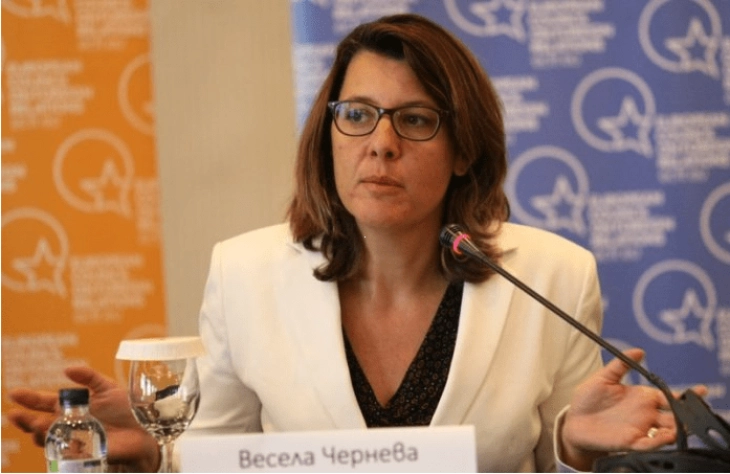Tcherneva: Names of Bulgarian clubs made to provoke, not to improve relations
- Any deterioration of bilateral relations between Sofia and Skopje not only makes it impossible to include Bulgarians in the Constitution, but is in the interest of Russian goals in the Balkans, said Vessela Tcherneva, Deputy Director of the European Council for Foreign Policy (ECFR) and foreign policy advisor of former Bulgarian Prime Minister Kiril Petkov.

Sofia, 16 February 2023 (MIA) - Any deterioration of bilateral relations between Sofia and Skopje not only makes it impossible to include Bulgarians in the Constitution, but is in the interest of Russian goals in the Balkans, said Vessela Tcherneva, Deputy Director of the European Council for Foreign Policy (ECFR) and foreign policy advisor of former Bulgarian Prime Minister Kiril Petkov.
In an interview with BTV, Tcherneva mentioned the Bulgarian National Assembly's decision of June 24 last year, when the MPs adopted a list of conditions regarding the relations with Skopje and for the two sides to start talks. Instead, the exact opposite has happened, Tcherneva added.
She believes Brussels will regulate the relations between Sofia and Skopje when the negotiations for North Macedonia's membership begin.
"The European Union will step into its role as a control body when North Macedonia begins negotiations. North Macedonia has not yet started negotiating in the EU, because there was one condition - that the Bulgarians be included in the Constitution. That has not been done yet," said Tcherneva.
According to her, in order to achieve this change there must be an appropriate environment, and currently there's escalation.
"Both sides are guilty. If we are interested in the fate of the Bulgarians in North Macedonia, it is Bulgaria's task to create favorable conditions, so that they can get the rights we want very soon," Tcherneva said.
Bulgaria's mistake, she notes, is also in the names of the Bulgarian clubs opened in North Macedonia, the purpose of which is to provoke, not to improve relations.
"They are made to provoke the other side. When you open a club to be a bridge to warming relations, you don't do it to offend the other side," Tcherneva said.







